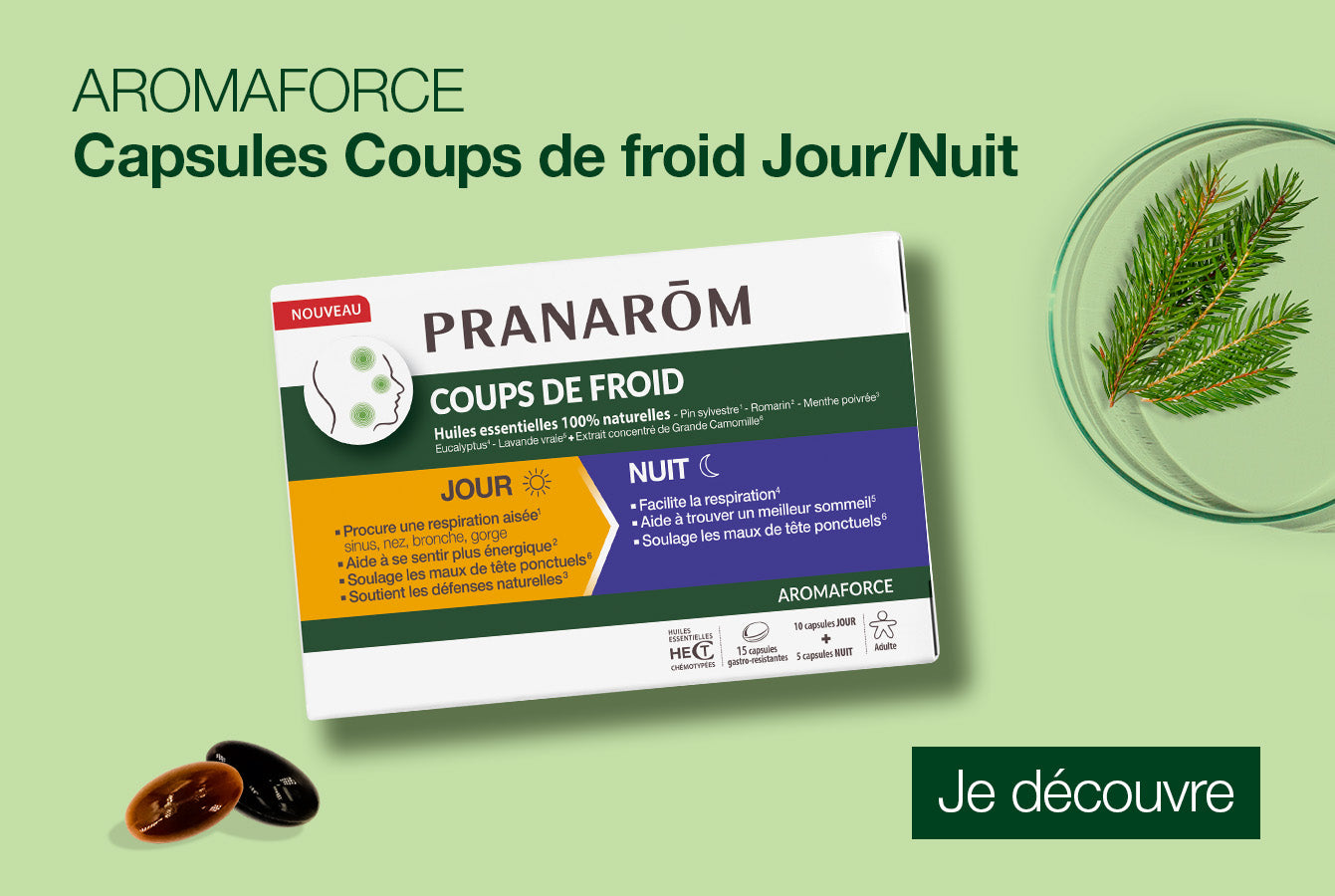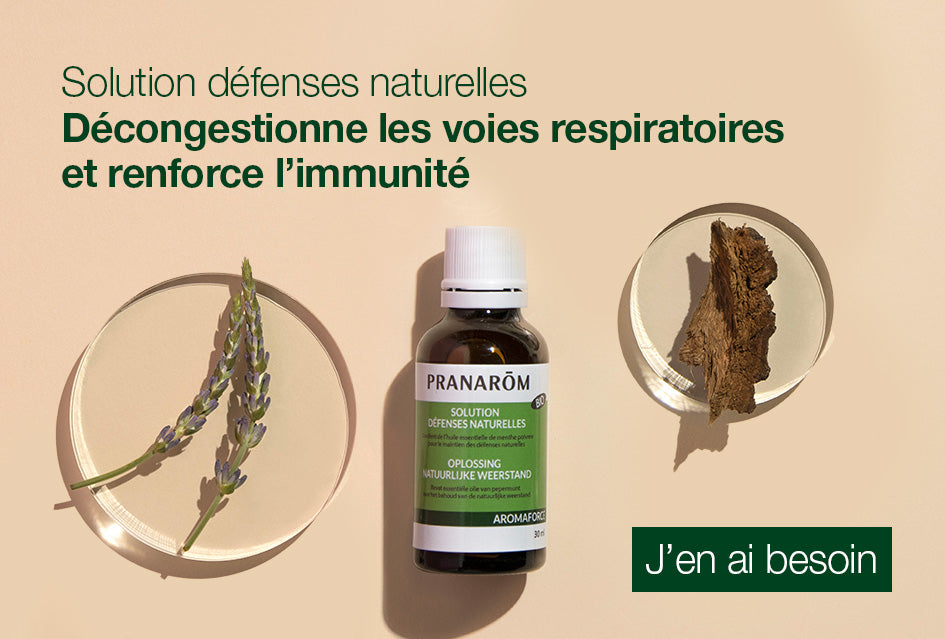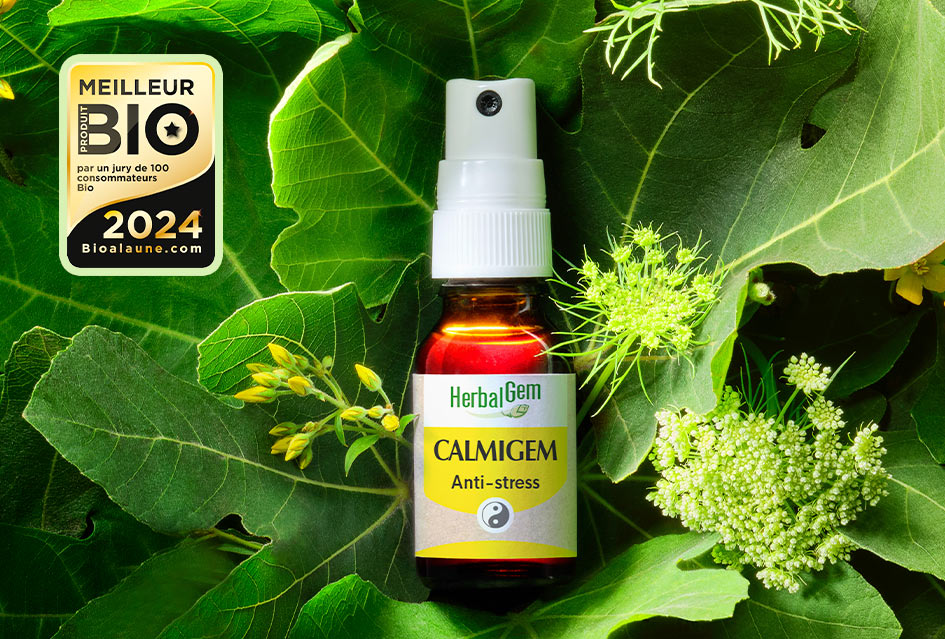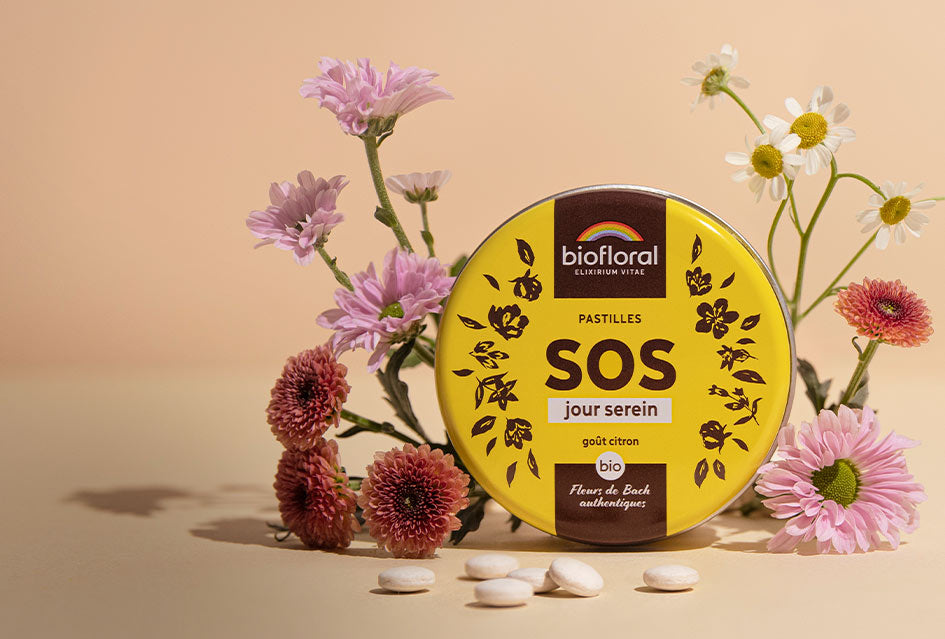Period illness or illness? Addiction is a problem that gets people talking! Addictions in our society are numerous and essential oils can be real allies to help us quit smoking naturally.
In this tobacco-free month, focus on the most widespread addiction in the world. So, are you ready to put out your last cigarette?
Understanding tobacco addiction
Addiction is a psycho-pathological behavior characterized by a constant and irrepressible desire for a substance despite motivation and efforts to escape it. Tobacco has a very strong addictive potential, ahead of alcohol, cannabis and even cocaine. It is nicotine that is at the origin of tobacco addiction.
What does tobacco do?
Every cigarette you smoke puts your health at risk. Tobacco consumption is the leading cause of preventable death and the leading cause of premature death, reducing the life expectancy of chronic smokers by an average of 10 years. Worse still, half of the people who smoke by age 20 and don't quit will die from a tobacco-related disease.
The risk of death depends on several factors: age of first cigarette, the total number of years one has smoked, the quantity of tobacco consumed daily, the way of smoking (deep inhales, number of puffs, cigarette kept between cigarettes). lips, etc.), type of tobacco (additives, tar and nicotine content), and individual genetic factors. But what is certain is that there is no minimum number of cigarettes that is harmless.
Say STOP to tobacco naturally?
The first thing to do to quit smoking is to have the necessary willpower and motivation will follow! Indeed, quitting smoking is an important personal decision and a real challenge. To free yourself from this dependence and reconnect with your senses, such as taste for example, it takes time and this is often done in stages.
Everyone has their own reasons for wanting to quit smoking but it is not uncommon for this desire to be shared with the fear of not being able to do so. Be confident in your ability to change and do not hesitate to consult a specialist such as a tobacco specialist, a pharmacist or a specialized doctor if the need arises.
Good news however, know that as soon as you stop smoking, your health improves and there are many methods to quit: medications, hypnosis, acupuncture, homeopathy or even aromatherapy...
Two years ago, we told you in the blog about a clinical study suggesting that inhaling the essential oil of black pepper (piper nigrum) could help smokers reduce smoking withdrawal symptoms.
Clinical study: Black pepper
As a reminder, the study published by Jed E. Rose and Frederique M. Behrn “Inhalation of vapor from black pepper extract reduces smoking withdrawal symptoms” (published in Drug and Alcohol Dependence 34 (1994) 225-229), the authors – belonging at 'Nicotine Research Laboratory, VA Medical Center and Department of Psychiatry of Duke University, USA' – focused on a substitute cigarette device, namely a puff tube based on essential oil of black pepper ( piper nigrum ).
Black pepper essential oil is in fact likely to cause slight irritating effects on the respiratory tract and would thus suppress the desire to smoke . The primary objective of this study was to evaluate the effects of the components of this relatively little-used essential oil on subjective withdrawal symptoms during a brief period of smoking abstinence in 48 male smokers aged 19 and 56 years.
The results of this study were quite surprising because they confirmed that inhaling black pepper essential oil through the mouth partially regained the respiratory tract sensations experienced by smoking and thus reduced the urge to smoke. However, this study demonstrated that inhalation should not be overused and that three deep inspirations for each desire to smoke were sufficient.
Essential oils and smoking cessation symptoms
Currently, other scientific studies show that aromatherapy helps to support the symptoms linked to smoking cessation. Particularly because they prove effective in rebalancing the body on several levels: limiting nervousness, combating mental fatigue and insomnia, improving transit, limiting weight gain, avoiding snacking and calming impulses and irrepressible needs for compensation. .
Quitting smoking can lead to a form of stress, depression, or even depression.
Quitting smoking can lead to a form of stress, depression, or even depression. Essential oils rich in linalool and/or linalyl acetate , such as true lavender [1-7], clary sage [8], or even bergamot [11-12] have proven virtues on these phenomena and could therefore represent allies of choice in smoking cessation.
Difficulty concentrating
Smoking cessation can cause difficulty concentrating during the day. In order to overcome this symptom, peppermint essential oil is obviously a great classic of aromatherapy [13].
But other oils also appear to be of great interest in this context, notably Rosemary officinal cineole oils [14-15].
Insomnia
In some cases, stopping smoking can lead to sleep problems. Once again, true lavender essential oil can have a beneficial effect by promoting sleep. Furthermore, Essential Oils rich in carvone such as caraway , dill , or even spearmint could also affect nervousness and sleep [21-23]. Finally, it should be noted that carvone has been reported to have a beneficial effect on compulsive behaviors [24].
Taking these same essential oils, in the form of a spray or chewing gum, also allows you to replace cigarettes when gradually stopping.
Natural solutions?
Quitting smoking is extremely difficult because it causes a triple dependence which is: physical, psychological and behavioral. To counter this triple dependence, we have developed a 100% natural and nicotine-free range for withdrawal.
Taking Strong Global Support capsules facilitates the withdrawal period thanks to a global approach to withdrawal symptoms. This comprehensive care includes both the physical aspect: metabolic disturbance and weight gain and the psychological aspect: irritability, depression, mental fatigue.
Usage tips :
- 1 capsule to take with a little water during the meal, 1 to 2 times a day, (morning and noon) during the delicate period
Instant quick release spray
A desire to smoke lasts between 3 and 4 minutes, the Quick Release Instant Spray is ideal for managing occasional desires. This spray helps overcome an irresistible urge during a phase of reducing tobacco consumption or stopping permanently. This synergy generates immediate saturation of taste receptors and an anxiolytic action.
Usage tips :
- 1 spray per dose, repeat as needed throughout the day
- If necessary: switch to 2 sprays per dose. Up to 10 doses per day
Shake before use
Quick release chewing gum
Ideal for managing occasional cravings, these chewing gums are to be used to overcome an irresistible desire to smoke or a craving felt during a phase of reducing tobacco consumption or stopping permanently. Sugar-free, this chewing gum, made by cold compression, can be chewed for 5 to 10 minutes.
Usage tips :
- 1 eraser per dose. Chew for 5 to 10 minutes. Up to 8 gummies per day. No particular chewing technique.
Essential oils and smoking cessation: Their effectiveness according to the University of Caen Normandy
Essential oils, particularly those of black pepper and mint/menthol, have been explored for their potential to aid in smoking cessation, reducing the adverse symptoms associated with this difficult process.
Claire Lerévérend studied the effects of inhaling vapors of essential oil of black pepper and mint/menthol in smoking cessation, as part of her thesis to obtain the State Diploma of Doctor of Pharmacy, defended in 2018 at the University of Caen Normandy.
Here are the main results of his study:
- Effective essential oils: Black pepper essential oil vapor significantly reduced cravings and anxiety-related somatic symptoms compared to placebo.
- Mechanisms of Action: The sensations in the airways induced by pepper essential oil have been important in relieving withdrawal symptoms, and cigarette substitutes providing pepper constituents may prove useful in treatment.
- Satisfaction and preferences: the satisfaction obtained by the use of menthol and black pepper essential oil was better in comparison with the placebo, highlighting a positive appreciation of the substitution.
These findings, based on rigorous scientific study, highlight the potential of essential oils in the treatment of smoking cessation, offering a promising and enjoyable alternative for those looking to quit smoking.
References
[1] Malcolm BJ and Tallian K. (2017) – “Essential oil of lavender in anxiety disorders: Ready for prime time?” Ment Health Clinic [Internet]. 2017;7(4):147-55. DOI: 10.9740/mhc.2017.07.147.
[2] BF Bradley, NJ Starkey, SL Brown, RW Lea (2007) – “Anxiolytic effects of Lavandula angustifolia odor on the Mongolian gerbil elevated plus maze” Journal of Ethnopharmacology, 111 (2007), pp. 517-525
[3] López V, Nielsen B, Solas M, Ramírez MJ, Jäger AK (2017) – “Exploring Pharmacological Mechanisms of Lavender (Lavandula angustifolia) Essential Oil on Central Nervous System Targets.” Front Pharmacol. 2017 May 19;8:280. doi: 10.3389/fphar.2017.00280. eCollection 2017.
[4] de Sousa DP, de Almeida Soares Hocayen P, Andrade LN, Andreatini R. (2015) – “A Systematic Review of the Anxiolytic-Like Effects of Essential Oils in Animal Models.” Molecules. 2015 Oct 14;20(10):18620-60. doi:10.3390/molecules201018620.
[5] Committee on Herbal Medicinal Products (HMPC) from the European Medicines Agency (EMA) (2012) – “Assessment report on Lavandula angustifolia Miller, aetheroleum and Lavandula angustifolia Miller, flos” EMA/HMPC/143183/2010 27 March 2012.
[6] Schuwald AM, Noldner M, Wilmes T, Klugbauer N, Leuner K, Muller WE. (2013) – “Lavender oil-potent anxiolytic properties via modulating voltage dependent calcium channels.” PLoS One. 2013;8(4):e59998. DOI: 10.1371/journal.pone.0059998. PubMed PMID: 23637742.
[7] Chioca LR, Ferro MM, Baretta IP, Oliveira SM, Silva CR, Ferreira J, Losso EM, Andreatini R. (2013) – “Anxiolytic-like effect of lavender essential oil inhalation in mice: participation of serotonergic but not GABAA /benzodiazepine neurotransmission.” J Ethnopharmacol. 2013 May 20;147(2):412-8. doi: 10.1016/j.jep.2013.03.028. Epub 2013 Mar 22.
[8] Seol GH, Shim HS, Kim PJ, Moon HK, Lee KH, Shim I, Suh SH, Min SS. (2010) – “Antidepressant-like effect of Salvia sclarea is explained by modulation of dopamine activities in rats.” J Ethnopharmacol. 2010 Jul 6;130(1):187-90. doi: 10.1016/j.jep.2010.04.035. Epub 2010 May 2.
[9] Gastón MS, Cid MP, Vázquez AM, Decarlini MF, Demmel GI, Rossi LI, Aimar ML, Salvatierra NA. (2016) – “Sedative effect of central administration of Coriandrum sativum essential oil and its major component linalool in neonatal chicks.” Pharm Biol. 2016 Oct;54(10):1954-61.
[10] Cioanca O, Hritcu L, Mihasan M, Trifan A, Hancianu M. (2014) – “Inhalation of coriander volatile oil increased anxiolytic-antidepressant-like behaviors and decreased oxidative status in beta-amyloid (1-42) rat model of Alzheimer’s disease.” Physiol Behav. 2014 May 28;131:68-74. doi: 10.1016/j.physbeh.2014.04.021. Epub 2014 Apr 18.
[11] Romola L, Tridico L, Scuteri D, Sakurada T, Sakurada S, Mizoguchi H, Avato P, Corasaniti MT, Bagetta G, Morrone LA. (2017) – “Bergamot Essential Oil Attenuates Anxiety-Like Behavior in Rats.” Molecules. 2017 Apr 11;22(4). pii: E614. doi:10.3390/molecules22040614.
[12] Saiyudthong S and Marsden CA. (2011) – “Acute effects of bergamot oil on anxiety-related behavior and corticosterone level in rats.” Phytother Res. 2011 Jun;25(6):858-62. doi:10.1002/ptr.3325. Epub 2010 Nov 23.
[13] Kennedy D, Okello E, Chazot P, Howes MJ, Ohiomokhare S, Jackson P, Haskell-Ramsay C, Khan J, Forster J, Wightman E. (2018) – “Volatile Terpenes and Brain Function: Investigation of the Cognitive and Mood Effects of Mentha × Piperita L. Essential Oil with In Vitro Properties Relevant to Central Nervous System Function.” Nutrients. 2018 Aug 7;10(8). pii: E1029. doi:10.3390/nu10081029.
[14] Pengelly A, Snow J, Mills SY, Scholey A, Wesnes K, Butler LR (2012) – “Short-term study on the effects of rosemary on cognitive function in an elderly population.” J Med Food. 2012 Jan;15(1):10-7. doi: 10.1089/jmf.2011.0005. Epub 2011 Aug 30.
[15] Moss M, Oliver L (2012) – “Plasma 1,8-cineole correlates with cognitive performance following exposure to rosemary essential oil aroma.” Ther Adv Psychopharmacol. 2012 Jun;2(3):103-13. doi:10.1177/2045125312436573.
[16] Tildesley NT, Kennedy DO, Perry EK, Ballard CG, Wesnes KA, Scholey AB. (2005) – “Positive modulation of mood and cognitive performance following administration of acute doses of Salvia lavandulaefolia essential oil to healthy young volunteers.” Physiol Behav. 2005 Jan 17;83(5):699-709.
[17] Kennedy DO, Dodd FL, Robertson BC, Okello EJ, Reay JL, Scholey AB, Haskell CF. (2011) – “Monoterpenoid extract of sage (Salvia lavandulaefolia) with cholinesterase inhibiting properties improves cognitive performance and mood in healthy adults.” J Psychopharmacol. 2011 Aug;25(8):1088-100. doi:10.1177/0269881110385594. Epub 2010 Oct 11.
[18] Scholey AB, Tildesley NT, Ballard CG, Wesnes KA, Tasker A, Perry EK, Kennedy DO. (2008) – “An extract of Salvia (sage) with anticholinesterase properties improves memory and attention in healthy older volunteers.” Psychopharmacology (Berl). 2008 May;198(1):127-39. doi:10.1007/s00213-008-1101-3. Epub 2008 Mar 19.
[19] Kennedy DO, Pace S, Haskell C, Okello EJ, Milne A, Scholey AB. (2006) – “Effects of cholinesterase inhibiting sage (Salvia officinalis) on mood, anxiety and performance on a psychological stressor battery.” Neuropsychopharmacology. 2006 Apr;31(4):845-52.
[20] Lopresti AL. (2017) – “Salvia (Sage): A Review of its Potential Cognitive-Enhancing and Protective Effects.” Drugs R D. 2017 Mar;17(1):53-64. doi:10.1007/s40268-016-0157-5.
[21] de Sousa DP, de Farias Nóbrega FF, de Almeida RN. (2007) “Influence of the chirality of (R)-(-)- and (S)-(+)-carvone in the central nervous system: a comparative study.” Chirality. 2007 May 5;19(4):264-8.
[22] Juan Carlos R. Gonçalves, Aron de Miranda H. Alves, Anna Erika V. de Araújo, Jader Santos Cruz, Demetrius Antônio Machado Araújo. (2010) “Distinct effects of carvone analogues on the isolated nerve of rats” European Journal of Pharmacology Volume 645, Issues 1–3, 25 October 2010, Pages 108-112
[23] G. Buchbauer, W. Jäger, A. Gruber, H. Dietrich (2005) “R-(+)- and S-(−)-carvone: influence of chirality on locomotion activity in mice” Flavor and Fragrances Journal Volume 20, Issue 6 November 2005 Pages 686–689 DOI: 10.1002/ffj.1600
[24] Francianne P. Nogoceke, Inara MR Barcaro, Damião P. de Sousa, Roberto Andreatini (2016) “Antimanic-like effects of (R)-(−)-carvone and (S)-(+)-carvone in mice ” Neuroscience Letters 619 (2016) 43–48.












